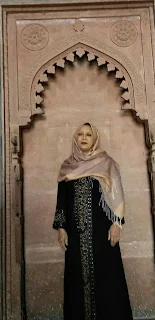A man usually needs his well-being, and he verily cannot get it by himself. Even a king cannot acquire his well-being on his own. He does not become king on his own. He becomes king through people. If there are no people, then what shall the king do? It is a fact that a king very much needs people for his well-being. Someone in Africa or in the wild can seek means and ways to survive, to live his life, but this is not the case for a king. (He is so accustomed to being served by people that) If ever he has to seek a means of livelihood on his own, he shall be able to do so except with much difficulty.
 Therefore, a king needs people more for his well-being than an ordinary person. And an ordinary person needs others more than a very poor person. This means that in this temporal world, to seek our well-being, we need other people. That is why we observe that generally speaking, a person seeks means which shall provide for his comfort. If he is famished and thirsty, he seeks food and drink. If he does not have any money, he seeks someone who has some to give him. If he is oppressed because he is alone, he seeks people who can come to his rescue. If he is sick, he seeks a doctor and takes medicines.
Therefore, a king needs people more for his well-being than an ordinary person. And an ordinary person needs others more than a very poor person. This means that in this temporal world, to seek our well-being, we need other people. That is why we observe that generally speaking, a person seeks means which shall provide for his comfort. If he is famished and thirsty, he seeks food and drink. If he does not have any money, he seeks someone who has some to give him. If he is oppressed because he is alone, he seeks people who can come to his rescue. If he is sick, he seeks a doctor and takes medicines.
All the means that a person seeks to depend on for his comfort are the most fragile of means. And these means are more fragile than a spiderweb if there is no divine help. It is indeed Allah who makes fire burn, and knife cut. Water also is under the control of Allah. Whenever Allah so wishes, rain falls. It is under the command of Allah that there is drought or cyclone. And it can happen that rain falls to an unexpected level. It is also Allah who gives the cure to people. A person (through the will of Allah) can get his cure in a simple concoction of herbs whereas others get healing by spending in medicines which are very expensive. Sometimes a person cannot get good sleep in his home which is well equipped with Air Conditioner and a comfortable bed whereas a poor man can get very good sleep even on rocks, straw or a simply broken bed.
Therefore, all means which are available for man to seek his well-being in this temporal world is not effective as long as the divine will do not allow it. That is why Allah the Almighty says in this verse of the Holy Quran:
"The example of those who take allies other than Allah is like that of the spider who takes a home. And indeed, the weakest of homes is the home of the spider, if they only knew." (Al-Ankabut, 29: 42).














